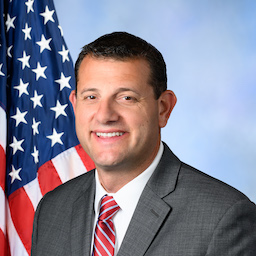- Home
- About
-
Services
- Art Competition
- Community Project Funding Map
- Congressional App Contest
- Congressional Certificate
- Event Request
- Flag Request
- Grants
- Grant Letters of Support
- Help with a Federal Agency
- Inauguration
- Internships
- Kids Page
- Meeting Request
- Service Academy Nominations
- Tour Requests
- Vietnam Veteran Commemoration
- Government Shutdown FAQ
- Issues
- Media
- Contact

Press Releases
House Passes Congressman Valadao's Bill to Allow for Kaweah Hydroelectric Project's Continued Operations
The existing permit for the Kaweah Hydroelectric Project in Tulare County is set to expire in 2026, and this bill authorizes seven permit renewals to ensure it can continue operating.
WASHINGTON – Today, the House of Representatives passed Congressman Valadao’s (CA-22) bill, H.R. 1044. The existing permit for the Kaweah Hydroelectric Project in Tulare County is set to expire in 2026, and this bill authorizes seven permit renewals to ensure it can continue operating. “The Kaweah Hydroelectric Project is a critical source of clean, reliable, and affordable energy for California, and these permit renewals are the key to keeping it running,” said Congressman Valadao. “Without authorization, CA-22 ratepayers would see a dramatic increase in their energy costs and would be left to foot the bill for dismantling much-needed infrastructure. This is an issue that’s been a priority throughout my time in Congress, and I look forward to working with my Senate colleagues to get this bill across the finish line.” Congressman Valadao spoke on the House Floor during debate on the legislation. Watch his remarks here or read as prepared below: Mr. Speaker, I rise to urge support for my bill, H.R. 1044, which authorizes seven permit renewals for the Kaweah Hydroelectric Project in Tulare County, California. Southern California Edison has operated the Kaweah Hydroelectric Project since 1899—marking well over a century of reliable, clean power. For decades, Congress has allowed the continued use of federal lands for this purpose. But unless we act now, that authorization will expire in 2026. Without authorization, Southern California Edison would be forced to dismantle critical infrastructure—costing ratepayers in the region tens of millions of dollars and eliminating a clean, reliable, and affordable source of energy. This bill ensures that Kaweah can keep operating without disruption or unnecessary costs to families across California. I want to thank Chairman Westerman and his staff at the Committee on Natural Resources for their work on this issue. I urge my colleagues to support this bill and protect the Central Valley’s clean energy future. Thank you, and I yield back. Background: Southern California Edison (SCE) and its predecessor have operated the Kaweah Hydroelectric Project since 1899, providing reliable, renewable energy to Californians. Part of the project’s infrastructure—Kaweah #3—is located on National Park Service land. Since 1912, the federal government has authorized use of this land through a series of permits.
|

